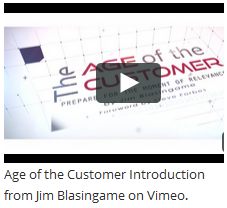Once upon a time, a storm caused two ships to sink in the same area. All on board were lost at sea, save one from each ship, and those poor souls were alive only because they swam to a small island nearby.
As luck would have it, the two men hauled themselves up on the beach at the same time and within sight of each other. But survivor’s elation soon became pensive as they realized that each spoke a language unknown to the other.
Immediately both men had the same unspoken thought, “I don’t know this man or the language he speaks, but if we’re going to survive, we have to find a way to communicate and work together.”
In many ways, this tale actually plays out every day. But instead of on the high seas, our story takes place in the marketplace. And instead of mythical shipwreck survivors, our real life players are small business owners and bankers.
Like the survivors in the first story, the excitement of the latter-day castaways about their future prospects turns pensive when they both realize that: 1) they need each other in order to be successful; and 2) they don’t speak each other’s language very well, if at all.
With so much common interest and so little mutual understanding, can these two create a successful survival story? Absolutely, but only if they have The Blasingame Official Translator for Bankers & Small Business Owners. Here are a few examples of how The Blasingame Translator works.
For small businesses to understand banker, they must:
- Identify their banker as a success partner and their business’ best friend.
- Stay close to their banker when things are going well, and even closer when things aren’t going so well.
- Believe that an uninformed banker is a scared banker, and a scared banker cannot, and will not, behave like a partner.
- Pay attention to what motivates and impresses a banker, like attention to detail.
- Understand pertinent bank rules and regulations, so you don’t ask for something that can’t be done.
- Reward banker loyalty with small business loyalty.
For bankers to speak small business, they must:
- Understand Blasingame’s 1st Law of Small Business: Starting a small business is easy, operating a successful one is not.
- Understand Blasingame’s 2nd Law of Small Business: It’s redundant to say, “undercapitalized small business.”
- Understand Blasingame’s 3rd Law of Small Business: A small business is not a little big business.
- Explain bank rules and regulations, and recommend services and products.
- In the credit scoring process, always find a way to give small business owners credit for character, past performance and best efforts.
- Reward small business loyalty with banker loyalty.
Write this on a rock … To avoid becoming marketplace castaways, small business owners and bankers must speak each other’s language.
Jim Blasingame is the author of the award-winning book, “The Age of the Customer: Prepare for the Moment of Relevance.”







